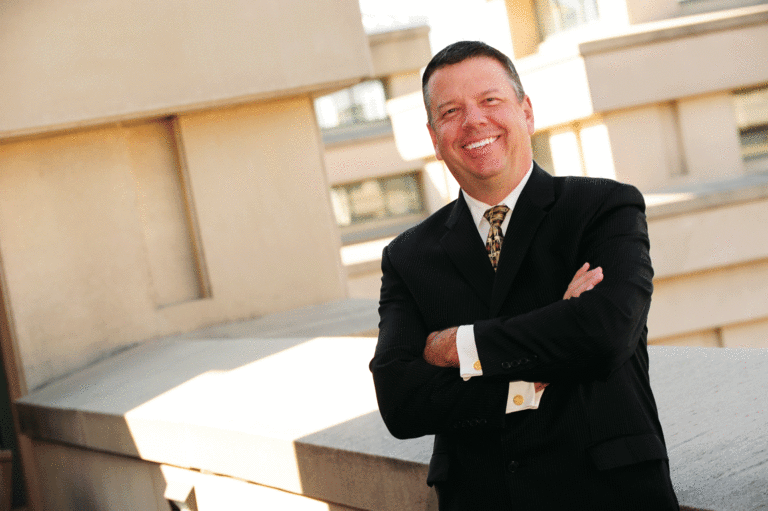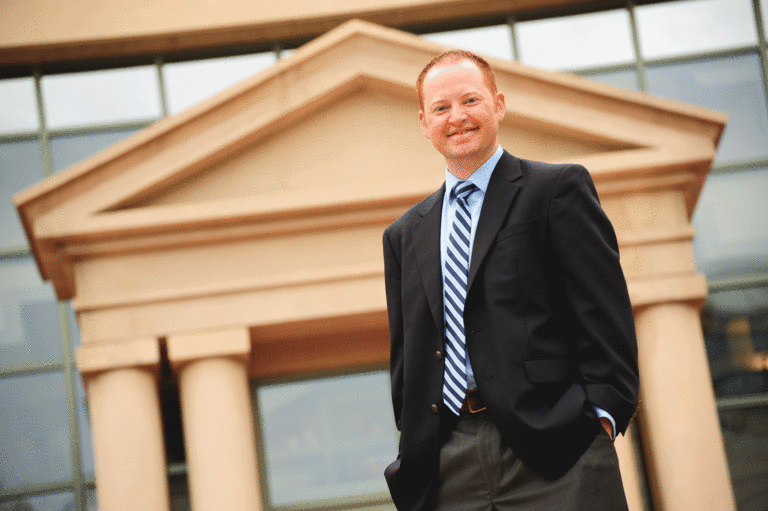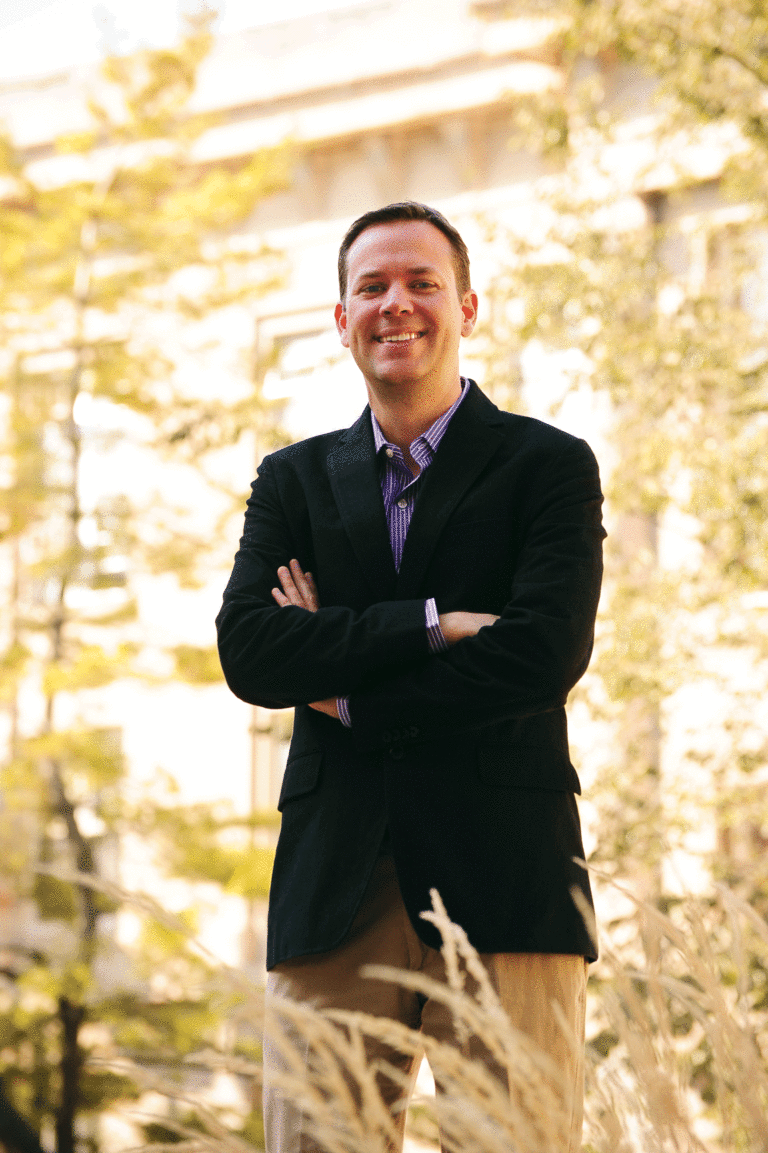University of Iowa Tippie College of Business faculty members are respected around the world for their research. In each of the college’s six academic departments, faculty members are contributing to the research enterprise that makes the University of Iowa a leading research institution. On any given day, Tippie faculty may be writing a textbook, editing a journal, conducting an experiment, or mulling over a thought that hasn’t made it into their written research.
The following are glimpses into the current research thoughts of six Tippie faculty members.

BEHAVIOR AND TRUST
Tom Rietz
Professor of Finance and Leonard A. Hadley Research Fellow
I trust you: “I work on a range of issues in behavioral economics and finance. Lately, I’ve been interested in trust, the belief in the reliability of others. Why do we trust each other? How are reputations built, destroyed, and rebuilt? How can we create institutions that encourage trust and trustworthy behavior?”
Restoring reputations: “We have a range of really interesting results. For example, sometimes rules governing behavior in interpersonal exchanges can actually destroy trust and eliminate trustworthy behavior. In the context of a company producing products for consumers, forcing companies to get outside financing repeatedly can make them more trustworthy! Why? Any company that sells a faulty product is punished by consumers. One that needs to attract investors is punished by both consumers and investors.”
Reputation management: “The more I work in the area, the more I understand the importance of reputation. We need trust in our interpersonal relationships to maintain them. Companies need good reputations to survive and prosper. In teaching, I spend much more time on reputation and reputation management than I used to, especially when teaching banking. The next stage in research follows from recognizing that sometimes, trust fails and reputations get damaged.”
Acts of Trust: “Our research suggests that, after a company’s reputation is tarnished, neither firing people nor changing compensation (such as capping bonuses to managers) can effectively restore the reputation. Each can help, but only if the company identifies the ultimate source of the damage and changes its governance, control systems, or culture to eliminate the source. Applied to the recent banking crisis, this suggests that it doesn’t do any good to fire people who made bad mortgage loans. You have to change the system that allowed them to make bad loans in the first place.”

BUILDING MODELS FOR BUSINESS INTELLIGENCE
Gautam Pant
Assistant Professor of Management Sciences
Mining for information: “My current research focuses on mining large and diverse online data for building predictive and explanatory models, such as those needed for gaining business intelligence. It is based on the premise that the online content and its linkages are not random but embed patterns. Those patterns can inform us about competition, reliability, status, visibility, and strategy that can be associated with social entities such as firms. Some of my early research was in collaboration with GlaxoSmithKline and NEC Labs, and it confirmed my belief that the web, with its ever-increasing user-base and content, is becoming an increasingly useful reflection of our collective social interactions.”
Online explosion: “The explosion of online data is a game-changing phenomenon of our times that is driven largely by exponential improvements in our IT capabilities. A key question for the next generation of business leaders is how we can optimally harness this data to improve processes, drive innovation, and better foresee the future.”
Recognizing patterns: “I intend to develop systematic methods for recognizing and triangulating patterns in online data that are spread across websites, pages, search engines, and social media. I also intend to contribute to our understanding of the web’s structure and dynamics.”
Tracking outcomes: “The findings of my research would inform firms and analysts about how the web may be used to track the interactions, environment, and outcomes with respect to various stakeholders such as consumers and investors. It would also inform new areas such as search engine optimization, online visibility, and social media strategy that are shaped by, and in turn, shape our modern business landscape.”

TIME COSTS OF CHILDREN
Alice Schoonbroodt
Assistant Professor of Economics
Population controls: “Many current policy debates involve the economics of population in one way or another: What is the future of the solvency of Social Security systems in developed countries? How is this related to the future path of fertility decisions? Can and should active fertility policy (e.g., child-care provision, subsidies, and parental leaves) alleviate these pressures, and if so, what is the best way to do this? What are the environmental effects of high population growth in developing countries? Should population control measures, such as those in China, be taken more broadly? How do we weigh the costs and benefits? How does current fertility affect future housing markets, government debt, etc.? Without a basic understanding of how the economy and fertility interact, these questions cannot be answered reliably.”
Familial sacrifice: “There is already a large literature on costs of children, but to the best of my knowledge, nobody knows how much income parents, in particular mothers, forego in order to care for children themselves. In the recent recession, for instance, fertility fell significantly more in states where times were particularly bad (as measured by the drop in state GDP and unemployment rates). This suggests that families wait or forego having children altogether due to recessions. This in turn changes the composition of the workforce a generation (20-30 years) down the road.”
Financial demographics: “Last year, I taught the undergraduate Intermediate Macroeconomics course, which is built around the recent financial crisis. My research fits right in since I can show the students that the financial crisis may have as wide-ranging effects as the future demographic composition. This in turn can be linked back to future housing markets which may be better for the small cohorts born these days (low demand leading to low prices when these cohorts are first-time home buyers).
For the graduate students, my research builds on 60 years of research in the growth and business cycle literatures. Those 60 years of results are applied in my research to answer specific questions about trends and fluctuations in population, for example.”

HOW RELATIONSHIPS INFLUENCE TEAM EFFECTIVENESS
Eean Crawford
Assistant Professor of Management and Organizations
Dream teams: “My current research focuses on understanding how networks of interpersonal relationships in groups and teams influence team effectiveness. My curiosity led me to look more closely at the relationships team members form and how the patterns of their interaction—or team networks—might be involved. In my doctoral dissertation, I studied over 100 MBA student teams and found that teams with one central person coordinating the work tended to have more conflict, were less satisfied with the team experience, and had less desire to continue working with the team. I observed the same things with groups that tried to split things up into two or three small subgroups. Often they had conflict bringing the group back together and were more dissatisfied with the experience relative to groups that tended to involve everyone more equally.”
Value of teamwork: “I dedicate a significant amount of time in my undergraduate Introduction to Management class to teamwork. The students work in project teams to complete several group projects, and I teach students how they can be effective team members and team managers. The experience these students have working together for my class is every bit as real as it will be in the workplace.”
Smart thinking: “As a 12-year-old boy when we were renovating the exterior of our house, my job was to carry the old bricks from the back of the house to the front curb. I carried them one at a time around the house, up the driveway, and to the curb. Then I discovered my neighbor’s wheelbarrow, and I ended up finishing off that brick pile pretty quickly. Today I’m highly interested in finding my ‘computing wheelbarrow’ for my team network research.”
Automating networks: “I hope to speed up and automate the analysis of team networks. I think there are some types of research questions we don’t even ask because it currently doesn’t feel feasible to find and analyze the kind of data needed to answer the question.”

LONELINESS AND CONSUMERISM
Jing (Alice) Wang
Associate Professor of Marketing and Leonard A. Hadley Research Fellow
Lonely people: “Loneliness is a very prevalent phenomenon but there is little research showing how lonely people behave as consumers. Another stream of my research focuses on how consumers get engaged into media content and whether advertisements appearing in such content benefit from the audience’s engagement.”
Power of persuasion: “One of the many challenges in marketing communications is to resonate with the target audience. My research on loneliness suggest, for example, that ads focusing on what consumers might miss if they do not use the advertised brands are more persuasive for the lonely segments (e.g., people living alone, college freshmen, expats). On the other hand, to resonate with people who are socially connected, ads will be more persuasive if they emphasize what consumers can gain if they use the advertised brands.”
Prevalent phenomenon: “Loneliness is a very prevalent phenomenon, and marketing researchers should make an effort to understand how loneliness affects consumption in order to design coping strategies for those consumers who do not benefit from their behaviors.”
Interactive ideas: “My research and teaching interests are intertwined. I constantly get new research ideas from interaction with students and I also reciprocate by informing students of the most current research findings.”
Competitive position: “Results of my research projects can help marketers and organizations better position themselves in fiery competition, help consumers make more judicious decisions, and help public policy makers design more efficient and sustainable policies.”

HOW OVERCONFIDENT CEOs IMPACT FEES FROM CONTRACTORS
Paul Hribar
Professor and Leonard A. Hadley Professor of Accounting
Huge ego = big pricetag: “I am looking at how individual psychological biases (in particular, overconfidence) affect contracting between companies and different counterparties. One approach to measure the degree of overconfidence of a Fortune 500 CEO is to look at how the business media describes the individual, and then count the number of times he/she is described as overconfident in these articles. Another approach is to look at how long they hold on to stock options in the company. Using these approaches, CEOs can be classified as relatively more or less overconfident. We can then examine how auditors adjust their fees and how credit-rating agencies adjust their credit ratings when dealing with an overconfident executive. We find that auditors tend to charge higher fees because of the greater likelihood that an overconfident CEO will engage in activities that increase the likelihood that the firm misstates its financial statements. Similarly, credit agencies lower their ratings when an overconfident CEO is running the company, as it increases the chance that he/she will take actions that hurt the creditors.”
Rational arbitrage: “For decades, most of the data-driven capital markets research in accounting has used economic theory to predict how individuals behave. My research follows an increasing trend to show that individual psychology matters. While this might seem like a common sense notion, it has actually been a slow process to convince other academics that these non-economic factors determine how contracts are written. We’re showing that auditors and credit rating agencies care about the character traits of who they are dealing with, not just financial statement numbers.”
Aggressive approach to business: “This line of research is interesting to the business community, as it shows that some individuals are predisposed to taking aggressive actions when running companies. Although this can benefit shareholders in some situations, such as pursuing new projects or in high-growth environments, there are other negative ramifications, such as greater likelihood of earnings management, higher fees paid to auditors, and lower credit ratings which increases the cost of financing.”